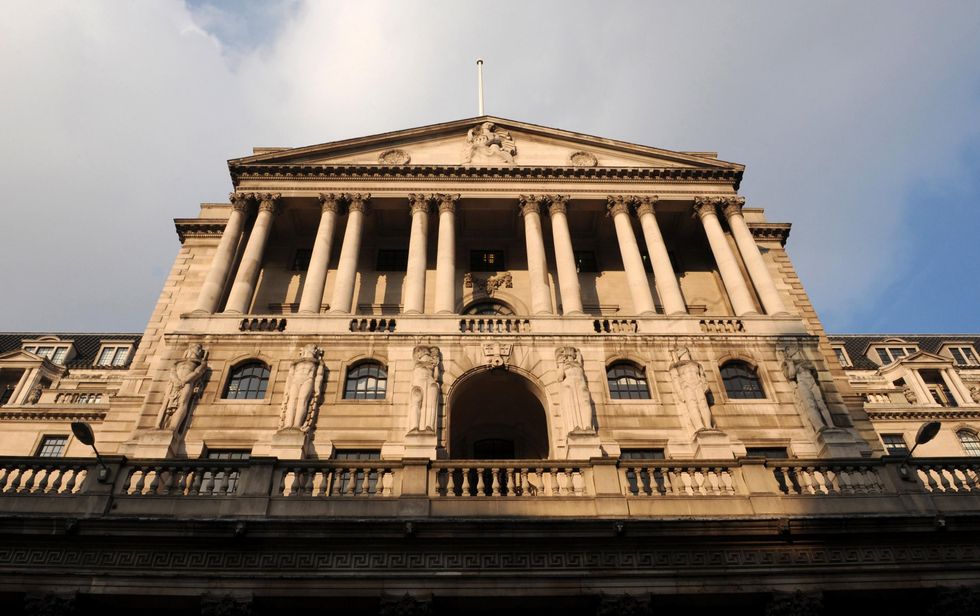Payments shake-up: Bank of England sets out major plans that could change the way Britons pay

What practical steps can people take if they’re struggling with higher repayments? |
GBNEWS

Stablecoins are a new type of digital money that could be used for retail payments and wholesale settlement in the future
Don't Miss
Most Read
Latest
The Bank of England has today set out plans to regulate new forms of sterling-based payments that aim to keep a stable value.
The move marks an important step in preparing for a future where new types of money could be used alongside cash and bank deposits.
The consultation outlines how these payment systems could be safely introduced and used for everyday spending and larger financial transactions.
The proposed rules focus on payment-related uses, rather than the speculative trading side of cryptocurrencies.
The plans follow feedback from banks, fintechs and other industry players after last year’s discussion paper, and form part of the UK’s wider effort to modernise its payments system.
Under the proposals, firms that issue these new forms of money would have to keep 60 per cent of their reserves in short-term UK government bonds.
The remaining 40 per cent would be held in special Bank of England accounts that don’t earn interest, ensuring customers can always get their money back even if markets become unstable.

: Bank of England unveils major reforms to how Britons pay
| PAFirms entering the systemic category or migrating from FCA oversight may initially allocate 95 per cent to government debt, facilitating sustainable expansion.
The Bank is exploring emergency liquidity provisions to assist systemic operators facing market disruptions when liquidating reserves proves challenging.
Individual holdings face a £20,000 cap per digital currency, whilst corporate entities encounter a £10million threshold, though larger corporations may secure exemptions. These restrictions aim to protect lending availability during the financial sector's adjustment period.
Reform UK Leader Nigel Farage MP said: "I was hoping after my meeting with Andrew Bailey, the Governor of the Bank of England, that he would finally get with the times and recognise that Stablecoins are now a major part of the modern, 21st century economic system.
"But no, a £20,000 limit on individual consumer ownership of Stablecoins is what he is sticking to. He is keeping the City in the dark ages. No wonder we are falling behind."
LATEST DEVELOPMENTS:

This marks a significant step in preparing for a future where new forms of digital money may be widely used for payments alongside existing ones
| GETTYSarah Breeden, Deputy Governor for Financial Stability, stated: "Today's proposals mark a pivotal step towards implementing the UK's stablecoin regime next year.
"Our objective remains to support innovation and build trust in this emerging form of money. We've listened carefully to feedback and amended our proposals for achieving this, including on how stablecoin issuers interact with the Bank of England.
"These proposals are fit for a future where stablecoins play a meaningful role in payments, giving the industry the clarity it needs to plan with confidence."
The Bank's approach demonstrates responsiveness to market participants' concerns whilst maintaining financial stability priorities.
 Pensioners who have been overtaxed when taking money from their pension can reclaim the excess | GETTY
Pensioners who have been overtaxed when taking money from their pension can reclaim the excess | GETTYThe Financial Conduct Authority will maintain oversight of non-systemic stablecoin operators, with Treasury designation determining which entities fall under the Bank's jurisdiction.
Transitioning firms will experience dual supervision, as the Bank manages prudential matters whilst the FCA retains consumer protection responsibilities.
Both regulators plan to release comprehensive guidance in 2026 clarifying operational requirements and ensuring seamless regime transitions. Public feedback on these proposals remains open until 10 February 2026.
Following the consultation period, the Bank will review submissions before drafting detailed Codes of Practice for industry consultation. Final regulatory standards are expected by late 2026, establishing comprehensive requirements for systemic stablecoin operations.
More From GB News










